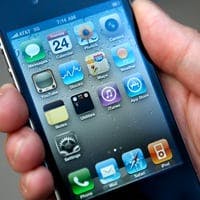According to a recent UK study, iPhone users have more friends than those who use other mobile devices.
Leisurestats.com collected data from more than 97,000 Chillisauce customers to identify what a person’s choice of technology says about them. The statistics revealed that trend-conscious iPhone owners have more friends than those with alternate mobile devices.
Two years ago, OkCupid.com conducted a study to identify the habits of online daters. The results of the survey revealed that iPhone users also get more action in the sack – a great selling point for Apple marketers if they haven’t already used it to their advantage.
So what now with this information? Should we all go buy iPhones now because we’ll have more friends and more sex? Or should we look the data more carefully?
These studies may seem misleading, given the narrow scope of the focus group but the results can be indicative of a wider global trend.
An interesting thing to investigate would be what ties iPhone users to popularity – perhaps the very psychology of iPhone users.
A study conducted by Hunch in 2009 concluded that Apple Mac users “associate themselves with people, objects, design elements, and media that help them express an individual identity.”
It is no surprise then that iPhone users tend to be gamers, music enthusiasts, media and design professionals, and people who generally like to play around with technology and be creative.
What’s common among these people is their sociability. Gaming and music fans tend to have a large social network and are keen to connect with others with similar interests. Media and design professions are highly demanding and require people to be stay connected with a very large and wide array of acquaintances.
But does the design of Apple products directly influence a person’s popularity? Perhaps it’s the modern and unique design elements of the iPhone, especially the apps, that affect how motivated an iPhone user is to connect with others.
Remember when you first bought that iPhone and you were checking out all the cool apps available in the App Store and you probably downloaded all the free ones to see what you can do with them? You then realised that activities that required a computer could be done just as easily on your iPhone – like posting updates on Facebook and Twitter, sending emails, talking on Skype, instant messaging, and a tonne of other social activities?
We can’t deny that Apple has revolutionised the way we connect with one another. The question is, how much of it is virtual and whether or not it even matters?

